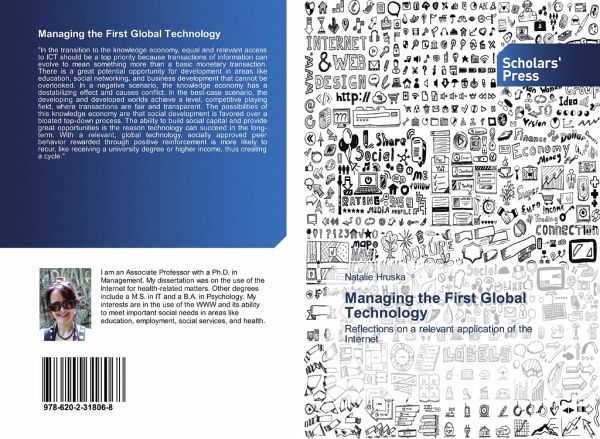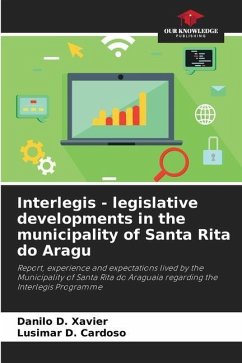
Managing the First Global Technology
Reflections on a relevant application of the Internet
Versandkostenfrei!
Versandfertig in 6-10 Tagen
30,99 €
inkl. MwSt.

PAYBACK Punkte
15 °P sammeln!
"In the transition to the knowledge economy, equal and relevant access to ICT should be a top priority because transactions of information can evolve to mean something more than a basic monetary transaction. There is a great potential opportunity for development in areas like education, social networking, and business development that cannot be overlooked. In a negative scenario, the knowledge economy has a destabilizing effect and causes conflict. In the best-case scenario, the developing and developed worlds achieve a level, competitive playing field, where transactions are fair and transpar...
"In the transition to the knowledge economy, equal and relevant access to ICT should be a top priority because transactions of information can evolve to mean something more than a basic monetary transaction. There is a great potential opportunity for development in areas like education, social networking, and business development that cannot be overlooked. In a negative scenario, the knowledge economy has a destabilizing effect and causes conflict. In the best-case scenario, the developing and developed worlds achieve a level, competitive playing field, where transactions are fair and transparent. The possibilities of this knowledge economy are that social development is favored over a bloated top-down process. The ability to build social capital and provide great opportunities is the reason technology can succeed in the long-term. With a relevant, global technology, socially approved peer behavior rewarded through positive reinforcement is more likely to recur, like receiving a university degree or higher income, thus creating a cycle."












